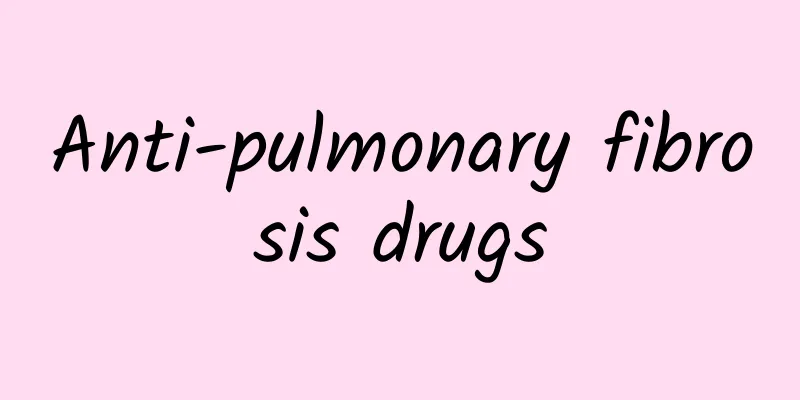Anti-pulmonary fibrosis drugs

|
I believe many people don’t know what the main anti-pulmonary fibrosis drugs are. We recommend that you consult a doctor before taking the medicine and take it according to the rules for use. Anti-pulmonary fibrosis drugs are mainly used to treat patients with pulmonary fibrosis and IPF. When taking these drugs, we should pay attention to the precautions of the drugs. There are many drugs for treating pulmonary fibrosis, and we should understand what drugs are available. 1. Glucocorticoids Due to differences in severity of illness, age, weight and other factors, the dosage of hormones may vary greatly. That is to say, hormone treatment should follow the principle of individualization. The patient's condition has not progressed much in the short term and is relatively stable. The principle is to maintain a low dose of Medrol at two levels of 4-8 mg/d and 8-16 mg/d. (II) Immunosuppressants Used for those who do not respond to hormones or have severe hormone side effects. Commonly used immunosuppressants include cyclophosphamide, azathioprine, methotrexate, etc. (III) Antioxidants In the treatment of pulmonary fibrosis, many studies have found that NAC has antioxidant effects. The current general dose for intervention in pulmonary fibrosis treatment is 600 mg orally three times a day. Its combination with hormones and azathioprine is superior to basic treatment. Commonly used drugs: Fluoxetine 0.6 tid Carbocisteine oral solution 10ml tid (IV) Anticoagulants Anticoagulant intervention is beneficial in the treatment of patients with pulmonary fibrosis. Commonly used drugs: low molecular weight heparin 5000u ih qd 7-14d (V) Pirfenidone Mainly used in IPF patients. Dosage: 100 mg tid orally; Although its preliminary results show promising therapeutic prospects and are encouraging, its effectiveness, safety, and route of administration still need to be further confirmed before it can be recommended for widespread clinical use. (VI) Other drugs Some drugs that have been or are currently used to treat other diseases have been found to have new anti-fibrotic uses, such as colchicine, interferon, ACEI or statins, but there is currently no definite application experience. The above are the relevant medications for the treatment of pulmonary fibrosis. After the above introduction, we will know what kind of drug treatment we should take once we suffer from pulmonary fibrosis. In this way, we can use drugs to curb the development of the disease in time. Therefore, once symptoms of pulmonary fibrosis appear, you must take medication in time. |
<<: Burns are still red after one month
>>: What does bilateral pulmonary fibrosis mean?
Recommend
What are the symptoms of laryngitis?
Talking too much and speaking loudly, coupled wit...
Tips to reduce pores and improve skin
Most people don’t care much about the problem of ...
What to do if your feet are cold
Winter may be difficult for some people because p...
Traditional Chinese medicine health care methods Men and women do this to maintain health, it can be fatal
Health preservation is now very important to peop...
What to eat is good for the lungs
The lungs are very important to our body's re...
What’s the quickest way to cure a child’s bloating?
It is a very common phenomenon in life that babie...
What is endometrial displacement? Causes of endometrial dislocation
Endometriosis has many causes, but there is no cl...
Heat rash on forehead
Now is the stage of global warming. The summers i...
The efficacy and function of pepper bath
Peppercorn is a mature crop in autumn. It is a tr...
How to grind Rehmannia into powder
Nowadays, many people prefer to use traditional C...
Why does my butt sweat?
Sweating buttocks is quite common in life, becaus...
Will there be more vaginal discharge during early pregnancy?
Normally, a woman's vaginal discharge will in...
Traditional Chinese Medicine for Hepatitis C
Hepatitis C is a type of viral hepatitis, a disea...
Chinese herbal medicine for dispelling wind and dampness
Rheumatism and rheumatoid diseases trouble many p...
Can horizontal bar relieve lumbar disc herniation?
Now our living standards have improved a lot, but...









